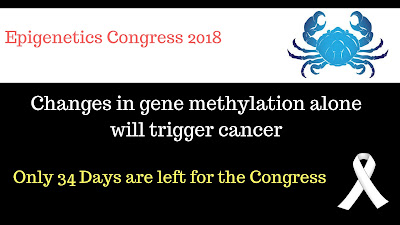Changes in gene methylation alone will trigger cancer
Baylor’s Lanlan Shen and her colleagues have currently shown that among mice within which this methylation magnet was introduced, twenty-seven percent developed lung cancer, leukemia, or sarcomas, whereas wild-type controls failed to develop tumors. 5 percent of mice that inherited one copy of the transgene and one wild-type copy additionally developed tumors. “For a few years we’ve been terribly convinced that deoxyribonucleic acid methylation changes and epigenetic silencing contribute to human cancer, and there are lots of observations that support that idea”.
“There are many lines of proof suggesting the vital role of epigenetics in cancer, as well as the fact that each one cancer show epigenetic amendment, and epigenome is get affected by most of the cancer mutations,” said by the Andrew Feinberg from the Johns Hopkins school of medicine Center for Epigenetics in Baltimore, Maryland. Feinberg added that whereas this study isn't the primary to point out those epigenetic changes alone will cause cancer; it “adds yet another valuable image to the massive picture.” For a minimum of a decade, the number of well-known associations between epigenetic changes and cancer has been growing. Abnormal methylation may be found in most cancers, and mutations within the enzymes that add alkyl group teams to DNA are related to some cancer varieties. In most human cancers, Shen said, the promoter of p16 contains alkyl radical C residues. However, it had been unclear whether or not p16methylation and silencing were an explanation for cancer or a consequence of it.




Comments
Post a Comment